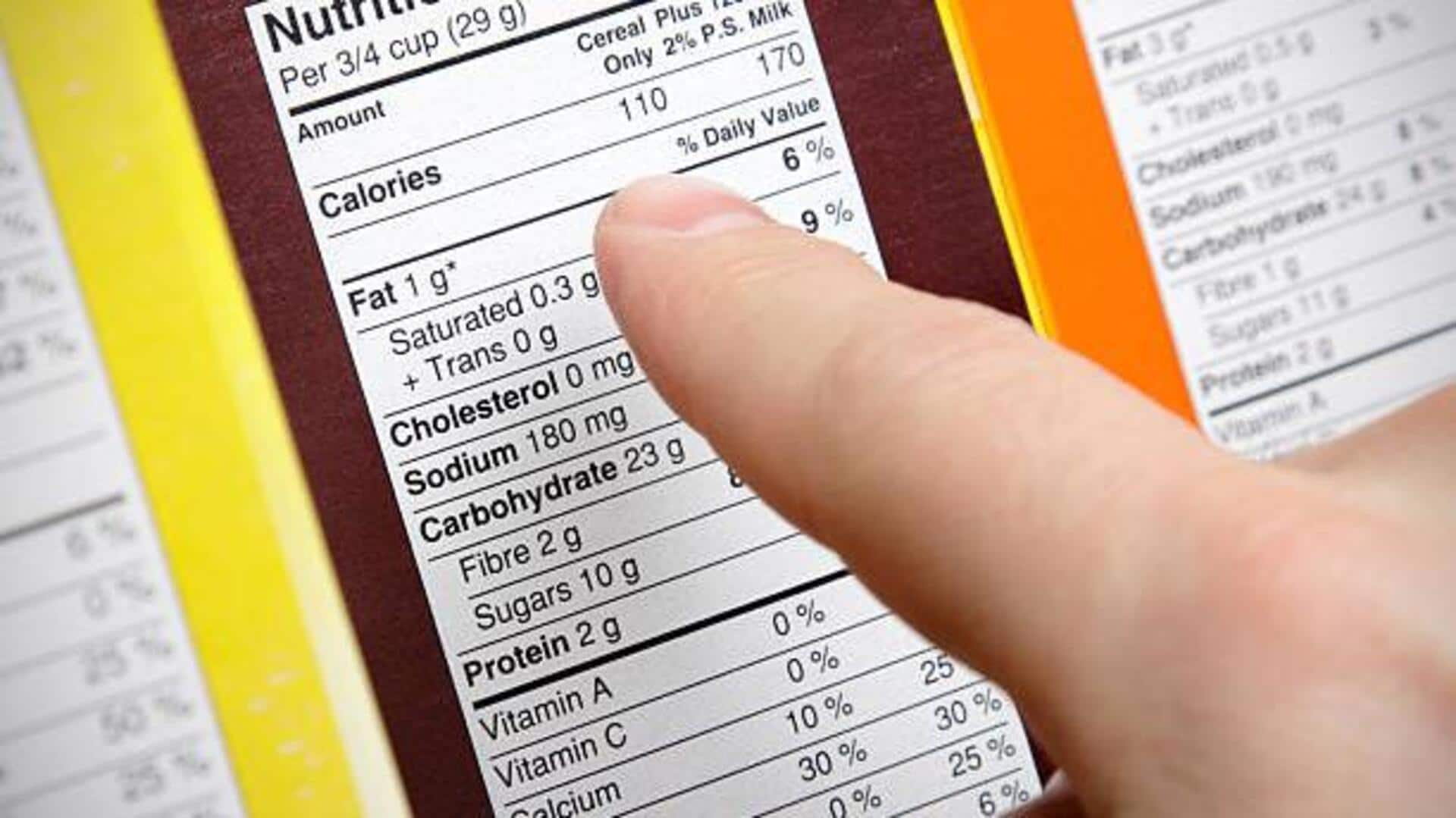
Nutrition labels: 5 myths debunked
What's the story
Nutrition labels are essential for making informed food choices, but they are often surrounded by misconceptions. These myths can mislead consumers and affect their dietary decisions. By debunking these myths, we can better understand what nutrition labels really mean and how to use them effectively. Here are five common myths about nutrition labels that need to be clarified for better dietary choices.
#1
Myth: 'Low-fat' means healthy
Many assume that low-fat products are automatically healthy, but that's not always true. While these products have less fat than their regular counterparts, they may have added sugars or preservatives to enhance flavor and texture. It's important to check the entire label, including sugar content and ingredient list, instead of relying solely on the low-fat claim.
#2
Myth: All calories are equal
Not all calories are created equal when it comes to nutrition. The source of the calorie matters greatly in terms of its effect on your body. For instance, 100 calories from almonds will give you more nutrients than 100 calories from candy. Focus on nutrient density rather than just calorie count for a balanced diet.
#3
Myth: Organic means pesticide-free
A common misconception is that organic foods are completely pesticide-free. While organic farming uses fewer synthetic pesticides, it does allow certain natural pesticides approved by regulatory bodies. Consumers should know that organic doesn't mean no pesticides; it means a different approach to farming practices.
#4
Myth: 'Sugar-free' equals no sugar
The term "sugar-free" can be misleading as it doesn't mean no sugar at all. Products labeled as such may still contain small amounts of sugar substitutes or natural sugars from ingredients like fruits or dairy products. Always check ingredient lists for clarity on what sweeteners are used.
#5
Myth: Whole grain is always whole grain
Not all whole grain products are as healthy as they seem. Some may have refined grains mixed in or be processed in a way that removes fiber and nutrients. Look for labels that say "100% whole grain" or check the ingredient list for whole grains as the first ingredient for authenticity.